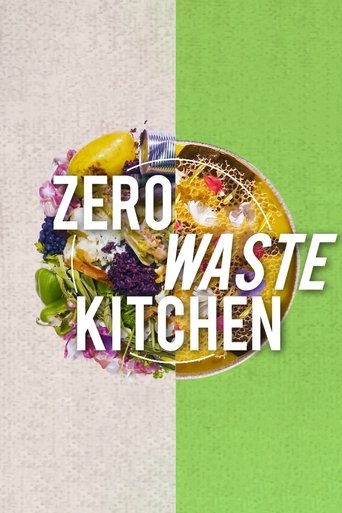
Air Date
July 15, 2022
Episodes
6 episodes
Zero Waste Kitchen
Season 1
Episodes
1. Why Are Carbs Always Discarded?
Studies have shown that carbohydrates like rice, bread and noodles are the most widely discarded food group in Singapore. Whether we eat at home or dine out, carbs have long been taken for granted as cheap fillers'. Our two zero waste newbies, Melissa and Benji, also have this careless attitude, so host Isaac decides to get them toiling at a mini rice field - right here in Singapore! With a newfound respect for the resources and effort it takes to grow a single grain of rice, Melissa and Benji head to the kitchen to learn ways to transform leftover carbs. They cap off their learning journey with a unique cook-off - utilising as many types of stale carbohydrates as they can! What kind of new life can they breathe into these previously unloved staples?
2. When Does Food Really Expire?
From use-by to best before, 80% of Singaporeans are confused by the terms printed on their food labels. What do these labels mean? And what happens if the product is past its expiry date? A typical household in Singapore throws away an average of 19.6kg of expired food every year. But does all of it have to be thrown away? Join our two kitchen amateurs, Kelvin and Ridhwan, as they go on a zero-waste journey to uncover when expired foods should actually be discarded. With the guidance of Chef Isaac Henry, our boys will learn essential pantry management, how to decode printed labels, and even hacks on how to use expired foods in everyday cooking! With hardly any cooking experience, how will Kelvin and Ridhwan fare in a zero waste cook-off against each other, using only expired goods?
3. Do You Waste Half The Fish?
Singaporeans consume 16kg of fish per person, every year. But just how much of the fish are we actually consuming? In one local fish farm alone, fish offcuts amount to 30,000 tonnes in a year because only fish fillets are in high demand. Home-based food business owner Julie and fish fillet enthusiast Hosanna go on a journey to learn all there is to cooking different fish parts, including its head, bones and even scales! Beginning with fish filleting, Hosanna and Julie sharpen their knife-wielding skills before picking up skills from a guru to conjure up fish stock, fried fish heads and chawanmushi with fish maw and roe. And finally, they pit their skills against each other with the ultimate zero-fish-waste cook-off!
4. Is Offal Really Awful?
Offal literally means 'waste' in certain languages. It's got a nasty reputation for being high in cholesterol and it's difficult to prep. But to cut down food waste, should we be eating more offal?
5. Can We Avoid Unavoidable Food Waste?
In Singapore, 744 million kg of food waste are thrown away everyday. 40% of this is considered unavoidable. They are bones, shells and peels. But are they really unavoidable? Or is there a way to extend their lifespan or transform them into new food items? In this episode, Chef Isaac Henry meets two zero waste enthusiasts who compost their vegetable peels and eggshells for their garden. However, their notion of zero waste is flipped on its head when Isaac sends them for a life-changing experience. From okara to moromi; coffee grounds to spent tea leaves, our contestants are introduced to new upcycled dishes created from food waste that was previously unavoidable. The journey culminates in a cook off, where they are tasked to create the ultimate zero waste meal. Will they succeed?
6. Are Ugly Produce Just As Good?
An apple a day keeps the doctor away, but most of us would not eat that apple if it was ugly. When bruised or mushy, ugly fruits and vegetables are discarded at the processing stage of the supply chain before even making it to the supermarket. But does this mean that they aren't as nutritious or taste as good? Foodies Shu Hao and Joe are both guilty of judging produce by their looks. To get them to see the beauty in the ugly, host Chef Isaac Henry leads them to Mobile Kaybie, a van that goes around different neighbourhoods in Singapore to distribute rescued produce for free! The trio also heads to a laboratory to check if blemished produce are just as safe and nutritious to eat as perfect looking ones. Then, they learn how to showcase the culinary possibilities made with ugly produce at an eatery. How will Shu Hao and Joe cope when tasked to cook with as many ugly fruits and vegetables as possible in our zero waste cook-off?